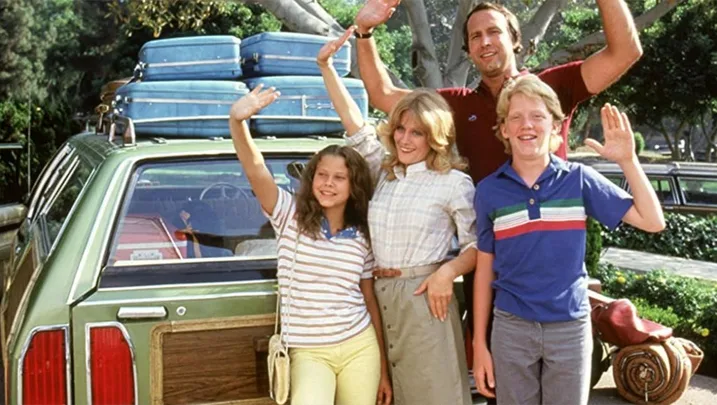Australia is a country that embraces car ownership. It’s a rite of passage, and the notion of getting from A to B is often not the primary reason for the purchase of a motor vehicle. There are some 19 million registered vehicles in Australia, with passenger vehicles accounting for 76 per cent of that number.
Cars are cheaper and more accessible than ever before. We also work and shop further from our homes in neighbourhoods where cars continue to be prioritised by urban planners over other modes of transport.
Throw in a couple of kids who need to be transported to school and activities, and roads that are far from pedestrian and cyclist friendly, and it’s no surprise motor vehicles are extremely popular.
The latest census figures indicate 51 per cent of Australian households have access to two or more cars with 36 per cent having at least three cars on their driveways. With more adult children staying at home into their late 20s, four-car households are not uncommon either.
While there has been a noticeable increase in the number of multiple car households in the last five years, we are actually driving fewer kilometres per capita. So we are buying more cars but driving less.
Given our congested roads, increasingly polluted environment and the fact that for many of us the average commute is less than 10 kilometres, would it not make sense to encourage one-car households?
City vs country
In our major capital cities, where extensive passenger transport networks include trains, buses, trams and even ferries, leaving the car at home is an achievable goal. You will save money on tolls and parking and of course prevent the stressors that can result from bumper-to-bumper traffic.
It’s hardly surprising then that ‘Metrotechs’, the name analysts give to inner city professionals who are likely to live in apartments, have the smallest number of cars per household (1.41). More than 15 per cent of Metrotechs don’t have a car at all, relying primarily on public transport.
In suburbia or regional and remote areas, access to reliable and timeous public transport is not as functional as it is in the city. Limited and infrequent services can hamper plans to regularly use public transport to get you to work or play.
Train stations, when available, are placed in areas that generally require a car to access. Having just one car per family in these areas would require planning and compromise especially if frequent destinations are not within walking or cycling distance.
Agile working spaces
Improvements to technology and internet speeds as well as an evolving workplace culture, and the rise of small businesses means that more people can work from home. If you happen to be one of those lucky ones, you may have limited need for a second car.
Cost
The Transport Affordability Index published by the Australian Automobile Association suggests owning a car can cost you up to $22,000 a year. Car repayments, registration and insurances are compounded by maintenance, the price of fuel and tolls.
Government figures that show congestion currently costs our economy $16 billion per year and that this will rise to $53 billion by 2031.
At present, a two-car household in Sydney currently faces transport costs of $419 per week, $376 in Brisbane and $348 in Melbourne. That excludes the cost of parking which can range between $20 -$80 a day.
Families that opt to go the one-car route, find that they have more disposable income, money that can be used to pay debt or boost savings.
Loss of freedom
The idea of not having a car at my disposal makes feel anxious, a touch short of breath. We have become so accustomed to getting ourselves to places at our leisure that it seems impossible to give up that luxury. And with the features and comforts found in modern cars, why would you?
Environment
Just 10 per cent of Australians think about environmental impacts before deciding on a new car but the reality is that the amount of greenhouse gasses associated with manufacturing the vehicle will more often than not, surpass the emissions from its exhaust pipe during its life. So, that second car that you are either using just over short distances or even just occasionally, has already left its mark.
Improved health
As Australia’s obesity epidemic continues to gather momentum, health care professionals are encouraging any type of physical activity. Naturally, one-car families tend to walk and cycle more, whether it is to the shops, dropping kids off at school or accessing sport and recreational facilities.
Social impacts
Families who have bucked the trend and opted for just one car often comment on the fact that they spend much more time together as a unit. Partners who share the car at the end of the work day have the opportunity to talk about their days and de-stress before arriving home. One car also tends to mean more combined family activities on the weekend.
Changes in our built world are also forcing us to question our motoring needs. Inner city high rises, new developments with land only big enough to accommodate one car and narrow streets with no off-road parking can make car ownership tricky.
A world of choice
Before you embrace being a single-car household, you will need to give thought to the car you do have though, ensuring it suits the needs of the family unit.
We are spoiled for choice in the department with modern cars impressing with their versatility. Many dual-cab utes and SUVs, for example, can be used for work and to carry your family around.
Car sharing services
There is no doubt that one car requires planning, cooperation and foresight. But even the best-laid plans can come unstuck. For those occasions, when you are sick, or it is too wet to ride or when you have luggage to transport, services like Uber come into their own.
Car sharing, too, is increasing in popularity with companies like Go Get, GreenShareCarand Flexicar allowing you to rent a car for short periods courtesy of a credit card and smartphone app. You can pick up and drop off from different locations adding to the flexibility.
Even better is the fact there are already car spaces reserved for these vehicles making car sharing even more attractive.
Programs like Car Next Door is a neighbour-to-neighbour car sharing enables you to short-lease a car from people in your neighbourhood. It is also a great option for people who have a second car that is seldom used.
One-car households are not for everyone. It is dependent on individual needs, where you live, where you work, what your finances are like and how you use your car. But just like the freedom of having your car on the driveway ready to go, it too, has its advantages.
This article originally appeared on CarsGuide.










